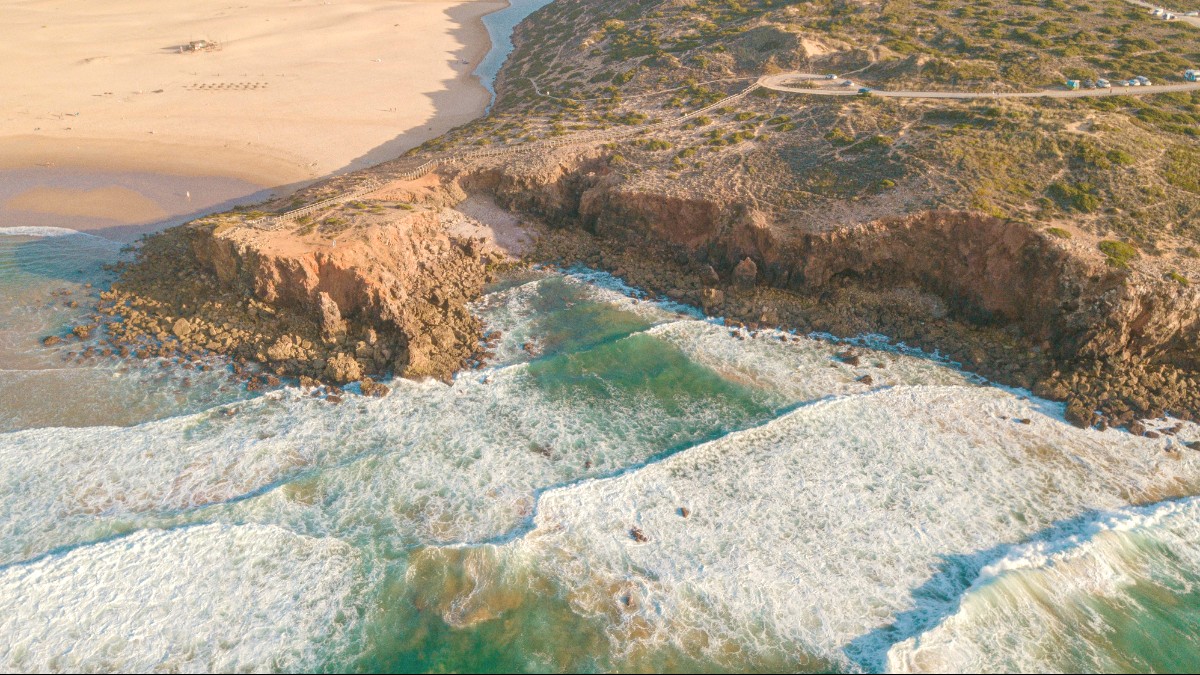
Southeast England, England
The island experiences a mild maritime climate, generally warmer and sunnier than much of the UK mainland. Rain occurs throughout the year. However, spring and early summer (April-June) typically see the lowest rainfall. The wettest months frequently fall between October and January.
The Isle of Wight experiences more sunshine hours than many other parts of the United Kingdom, adding to its appeal. Humidity levels remain moderate, rising during warmer summer months, making humid conditions possible, especially on still days.
The island's coastal location means strong winds occur, especially on coastal paths, even in summer. Winter months can bring fog, which impacts ferry crossings.
The Isle of Wight does not experience monsoons, hurricanes, or extreme temperatures like those found in desert regions.
July-August
Warmest weather, longest daylight. All attractions and businesses function at full capacity. Major events like Cowes Week occur.
Most crowded period. Accommodation and ferry prices reach their highest. Booking everything, especially car ferries, is necessary.
May-June, Sep-Oct
Pleasant weather with fewer crowds. Lower prices for lodging and ferries. Most attractions stay open. Ideal for outdoor pursuits.
Weather can be less predictable, especially in autumn. Some seasonal events might not be running.
Nov-April
Quietest period with the fewest crowds. Lowest prices for lodging and ferries. Peaceful, tranquil atmosphere.
Coldest and wettest weather. Shorter daylight hours. Many seasonal attractions, restaurants, and shops close or function with limited hours.
July and August present the warmest water and best swimming conditions. Spring and autumn mark the best times to spot wildlife, including birds and the famous red squirrels.
Plan your hiking and cycling trips for May-June and September-October. These months present pleasant temperatures and fewer crowds on trails. Attend major events like the Isle of Wight Festival and Cowes Week from June to August.
Perfect for sunbathing and swimming.
Crisp air, foliage, fewer people.
Mild temperatures, blossoming landscapes.
Quiet, reflective periods with low prices.
High energy, music, and sailing events concentrated in summer.
The Isle of Wight is part of the United Kingdom. Therefore, standard UK visa requirements apply to all visitors. Entry procedures are straightforward for most nationalities.
Many nationalities need a Standard Visitor visa. The application process commonly proceeds online via the UK government website. An attendance at a visa application center for biometrics (fingerprints and photo) follows.
Prepare these documents for seamless entry. Store both physical and digital copies.
Plan your budget for the Isle of Wight to fit your travel style. The Great British Pound (GBP, £) serves as the currency.
ATMs exist widely across the island in towns and larger villages. Credit and debit cards from major networks like Visa and MasterCard accept widely. Contactless payment is common and convenient.
Inform your bank of your travel plans before you depart to avoid card issues. Exchange currency at banks or bureaux de change if needed, but card payments frequently offer the best rates.
A traveler focused on minimizing expenses, often utilizing self-catering options, public transport, and free attractions.
Accommodation: Hostel dorm, basic campsite, budget B&B (£25-£40).
Ferry with car: Potentially large expense; consider foot passenger options.
Seeks a balance between comfort and cost, enjoying casual dining and a mix of paid and free activities.
Accommodation: Mid-range hotel, guesthouse, B&B (£60-£100).
Peak season car ferry: Still a noteworthy cost; booking early is recommended.
Prioritizes comfort, exclusivity, and premium experiences, with less concern for daily expenditures.
Accommodation: Boutique hotels, luxury resorts (£150+).
Unplanned last-minute ferry bookings during peak season.
| Category | Price Range (per night/meal) | Notes |
|---|---|---|
| Hostel Dorm Bed | £25-£40 | Outside peak season, budget-friendly |
| Mid-range Hotel/B&B | £90-£150 | Good value, comfortable stays |
| Casual Dinner (main course) | £15-£25 | Pubs, mid-tier restaurants |
No specific vaccinations are a requirement for UK entry. Ensure routine vaccinations (MMR, Tdap, Polio, Flu) hold current status.
Utilize Sunscreen (SPF 30+), wear a hat, and drink ample water to remain hydrated.
Ticks exist in wooded areas. Wear long trousers when hiking and consider Insect repellent. Check for ticks after walks.
Emergency Number: 999 (Ambulance, Fire, Police)
Dial 999 for genuine emergencies only. For non-emergency medical advice, call 111 (NHS helpline). St. Mary's Hospital in Newport serves as the main hospital with an Accident & Emergency (A&E) department.
Pharmacies exist in towns for minor ailments and prescription refills. Look for the green cross sign.
Tap water on the Isle of Wight holds safety for drinking. Food hygiene standards are high across all establishments.
Acquiring comprehensive travel insurance comes highly recommended. Your policy should cover medical emergencies, trip cancellation/interruption, baggage loss, and personal liability.
Verify that your policy encompasses any specific activities you plan, like adventure sports.
Keep your travel insurance provider's contact details readily accessible. Store these numbers on your phone and carry a physical copy.
The Isle of Wight maintains a low crime rate and is generally very safe. However, awareness of certain natural hazards is sensible.
Have these essential contacts readily available for any unforeseen circumstances.
Police, Fire, Ambulance: 999 (for life-threatening emergencies)
NHS Non-Emergency: 111 (for urgent medical advice when it's not a 999 emergency)
+44 (0)20 7499 9000 (for consular services if passport is lost or stolen)